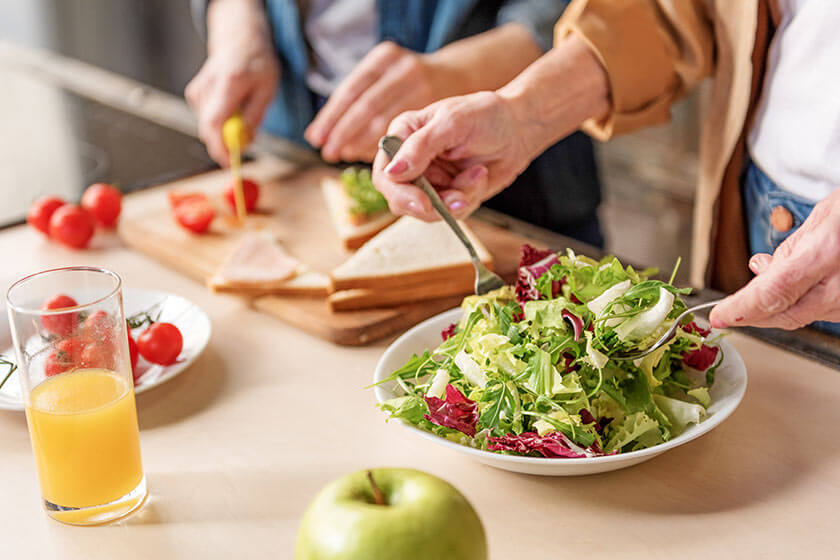It should not be a daunting task to be able to eat well. Eating healthily does not necessitate a nutrition degree. Finding a diet you can follow every day—not a fast cure or a difficult, restricted plan—is the key to healthy eating. It’s vitalto maintain consistency and create a well-balanced plate for each meal. This can be difficult as you grow older. A simple reminder might sometimes be the first step toward progress. To get started on your journey to eat right, follow these nutritional tips for your loved ones.
Lean Proteins Is Key
Protein, which maintains strong muscles, is necessary when muscles deteriorate with age. Deteriorating muscles are less capable of supporting bones, resulting in bone density loss and fractures. Protein is required by older individuals in greater amounts than by younger adults. According to current studies, 1–1.2 g/kg per day is recommended. For a 140-pound individual, that’s around 60–75 grams. Protein is abundant in meat, dairy products, nuts, and legumes. Stick to lean foods like fish or investigate vegetarian protein sources to keep your calorie intake low.
Calcium and Vitamin D Go Hand-in-hand
Calcium promotes bone density, while vitamin D aids calcium metabolism. These two essential minerals, when combined, can help to prevent osteoporosis and promote dental health. Mature males require 1,000 mg of calcium per day, whereas mature women require at least 1,200 mg. Older individuals require 600 IU of vitamin D each day until they reach the age of 70, in which the daily dose is increased to 800 IU. Vitamin D and calcium are abundant in dairy products such as milk, cheese, and yogurt. So be sure to stock up on these on your next trip to the grocery store.
Variation Is Essential
Avoiding restrictive fad diets is the greatest approach to ensure that you obtain all of the nutrients you require. These diets frequently require you to exclude major groupings of foods, such as dairy or wheat, increasing the risk of being deficient in critical nutrients. Graze on small meals throughout the day and try a range of different foods.
Say Goodbye to Processed Food
Many pre-packaged goods, such as cookies and potato chips, are nutritionally deficient. They are also heavy in calories, so don’t rely on them too much. You don’t have to starve yourself though. It’s fine for most older individuals to eat a few servings each week. If you have a craving for something sweet, consider creating your own sweets because the components are easier to regulate.
Supplement Your Diet
If you have dietary limitations or specific needs, a multivitamin might help you avoid losing out on important nutrients. Consult your doctor to see whether a multivitamin developed particularly for mature adults is suitable for you. Supplements with vitamins and minerals can help you stay healthy. Protein-rich nutritious smoothies will keep you feeling satisfied for longer while also supplying protein.
Stay Healthy with Seaton Springwood
At Seaton Springwood, we offer various senior living amenities which you can enjoy. From our Personal Care option to our exclusive senior living programs, you can enjoy living independently while staying healthy with the help of our team members. Want to find out more? Contact us today!







